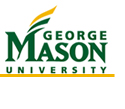|
|
History
Since 1988, George Mason University has offered the Doctor of Arts in Community College Education (DACCE) to serve the growing population of undergraduate students in two-year colleges. Over 200 graduates are now contributing to the academic, administrative, and pedagogical activities in community colleges, four-year colleges, and universities around the country.
On July 1, 2001, the DACCE program moved into George Mason University’s College of Arts and Sciences, now the College of Humanities and Social Sciences. That summer CAS and DACCE faculty met to revise, update, and expand the program.
Beginning Fall 2004, the Community College Program’s name was changed to the Higher Education Program. This change reflects the addition of new curricula that include two Higher Education Concentrations in Administration and Student Services. A PhD was added in 2008. The Higher Education Program offers four graduate degrees and two certificates:
- Doctor of Arts (with 20 discipline options)
- Doctor of Philosophy in Education, specialization in Higher Education
- Master of Arts in Interdisciplinary Studies/Community College Teaching
- Master of Arts in Interdisciplinary Studies/Higher Education Administration or Student Services
- Graduate Certificate in College Teaching Certificate
- Graduate Certificate in Higher Education Administration
Mission
The Higher Education Program at George Mason University prepares individuals for positions of leadership in teaching, research, and administration at community colleges, four-year colleges, and universities around the globe. At the master's and doctoral levels, the interdisciplinary curriculum focuses on leadership, the scholarship of teaching and learning, and assessment. The program also offers coursework to prepare students for positions in academic affairs and student affairs.
The Program rests on the four core principles that prepare graduates to handle the changing needs of today's college students.
- Ethical leadership. Effective leadership derives from ethical integrity and a respect for the diversity of others.
- Assessment. Assessment allows for educational improvement by measuring whether an individual, program or institution is achieving its desired goals. Faculty learn to collect and critically analyze data through the scholarship of teaching and learning and to develop ways to implement their findings to improve student learning. Administrators learn to create and assess practice-based research and to make informed decisions.
- Information technology. Information technology has been identified as a primary focus for Mason’s excellence. It fits the needs and goals of the region and the nation, and our faculty and students creatively use and critically examine information technology for their academic goals.
- Diversity. This program prepares leaders who will foster educational and work environments free from discrimination. Further, students and faculty will encourage diversity of thought in the classroom and in research.
All courses emphasize these core principles in higher education. With this background and the guided practical experience provided by internships, students are prepared to lead their institutions to respond to the changing needs of 21st century students.
|


